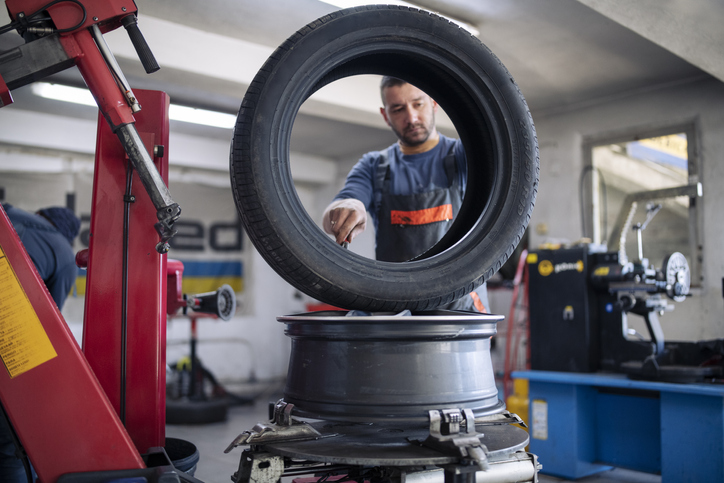
In today’s fast-paced world, where mobility is a necessity, the impact of tire waste on the environment is often overlooked. Each year, millions of tires are discarded as a result of routine tire changes. However, proper tire disposal and eco-friendly practices can play a pivotal role in mitigating the environmental impact of this waste. In Canada, where the tire change season is a yearly event, there’s an increasing focus on adopting sustainable methods to manage used tires.
The Environmental Challenge of Tire Waste
Tire disposal poses a significant environmental challenge due to the non-biodegradable nature of rubber and the potential release of harmful chemicals as tires break down over time. Improper disposal, such as dumping or burning tires, can lead to air and water pollution, soil contamination, and threats to wildlife. To address this challenge, Canada has been implementing stringent regulations and promoting tire recycling initiatives.
Tire Change Events: A Catalyst for Change
One effective way Canada is tackling the issue of tire waste is through organized tire change events. These events not only promote road safety by encouraging regular tire changes for better traction and handling but also create opportunities for proper tire disposal and recycling. During a tire change event, individuals can bring their used tires to designated collection points, where trained professionals ensure that the tires are handled responsibly.
Eco-Friendly Practices in Tire Recycling
1. Tire Retreading: Retreading involves applying a new layer of tread to the worn-out tire carcass. This process extends the life of the tire, reduces the demand for new tires, and conserves valuable resources. Tire retreading also reduces greenhouse gas emissions associated with the manufacturing of new tires.
2. Crumb Rubber Production: Tires can be recycled into crumb rubber, which is used in various applications such as playground surfaces, athletic tracks, and road construction. This practice not only diverts tires from landfills but also reduces the need for raw materials and promotes a circular economy.
3. Pyrolysis: Pyrolysis is a thermal process that breaks down tires into valuable components like carbon black, oil, and gas. These components can be used as raw materials in the production of new tires or other industrial processes. Pyrolysis not only minimizes waste but also contributes to energy recovery.
4. Civil Engineering Applications: Ground tire rubber can be mixed with asphalt to create rubberized asphalt, which is used in road construction. This innovative approach enhances road durability and reduces noise, while simultaneously addressing the issue of tire waste.
Benefits of Eco-Friendly Tire Recycling
1. Reduced Environmental Impact: By recycling tires, we prevent the release of harmful chemicals and reduce the pressure on landfills, which in turn reduces the risk of pollution and habitat destruction.
2. Resource Conservation: Recycling tires conserves valuable natural resources like oil, rubber, and minerals, contributing to a more sustainable future.
3. Energy Savings: Recycling tires requires less energy compared to manufacturing new ones from raw materials. This helps reduce greenhouse gas emissions and the carbon footprint associated with tire production.
4. Job Creation: The tire recycling industry generates employment opportunities in various sectors, including collection, processing, and manufacturing.
Individual Responsibility: Making a Difference
As responsible citizens, we can make a positive impact by embracing eco-friendly practices and participating in tire change events. Here’s how you can contribute:
1. Regular Maintenance: Regularly inspect and maintain your tires to extend their lifespan. Properly inflated and aligned tires wear out less quickly, reducing the frequency of tire changes.
2. Attend Tire Change Events: Participate in organized tire change events to ensure your old tires are recycled properly. These events often collaborate with tire recycling facilities to manage the collected tires responsibly.
3. Educate Others: Spread awareness about the importance of proper tire disposal and recycling within your community. Encourage friends and family to adopt eco-friendly practices.
In Conclusion
Tire recycling and proper disposal are crucial components of Canada’s efforts to build a more sustainable future. Through tire change events and the adoption of innovative recycling methods, the nation is actively addressing the environmental challenges posed by tire waste. By participating in these initiatives and embracing eco-friendly practices, individuals can play an essential role in creating a greener and cleaner environment for generations to come. So, the next time you’re due for a tire change, remember that your actions can contribute to a more sustainable and eco-friendly world.